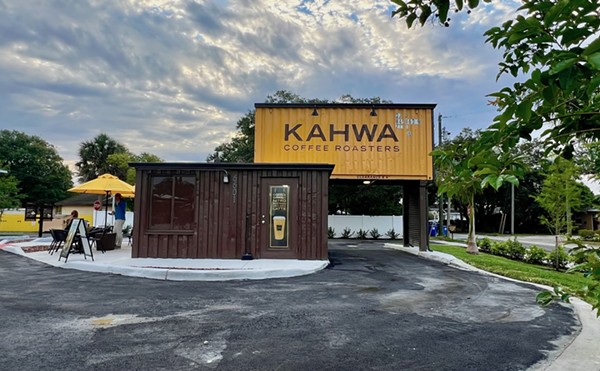
Huddled over a bucket, Lupe Gonzalo demonstrated how she and other farmworkers positioned themselves while harvesting tomatoes from Florida fields. Working in agriculture for 12 years, a bucket was her only tool.
During “Our Food/Our Table: From the Ground Up,” her April 12 lecture at the Florida Holocaust Museum, Gonzalo said farmworkers spent entire workdays hunched over. Before the Coalition of Immokalee Workers, a worker-based human rights group, launched its Fair Food Program, farmworkers collected tomatoes and filled, overfilled, their buckets as quickly as possible to meet growers’ demands.
Gonzalo, a member of the CIW who has been educating farmworkers on their rights since 2011, said workers used to wake up at 3:30 a.m. Parents rose even earlier to drop their children off at another worker’s home.
Those seeking work congregated in large parking lots. By 4 or 4:30, growers started selecting who they wanted to employ for the day. Although workers arrived at the tomato fields around 6, they were not allowed to begin working until 10:30. Gonzalo said they were not paid for being idle.
Women could not lean forward in a certain way if people were standing behind them in the fields, she said. Sexual harassment and abuse were common. She referred to violence against women, pre-CIW, as “our daily bread.”
Dependent on a fixed piece rate, workers lifted loaded buckets to their shoulders and ran about 100 feet to empty tomatoes into a moving truck. According to Gonzalo, farmworkers received a token for each bucket they filled throughout a 10-hour day.
However, the industry did not always operate like this.
“We experienced various forms of wage theft,” she said. “If we didn’t overfill our bucket to the crew leader’s liking, they wouldn’t give us the ticket, the token, that would enable us to receive pay for that bucket.”
A bucket weighs around 32 pounds, Gonzalo said. But overfilled, it weighs between 34 and 36 pounds. Every shift, workers had to pick more than 153 buckets of tomatoes to match the equivalent of minimum wage.
“Put in pounds, that’s 2.5 tons of tomatoes picked and hauled in one day alone … the weight of an elephant.”
Gonzalo said workers earned an average of $10,000 per year after a successful season. Addressing the room, she asked guests how much they would like to be paid as farmworkers in the fields.
“$200,” someone shouted.
“Fair wage,” another said. “$40 per hour.”
In 2008, the CIW discovered farmworkers being held against their will, chained inside a box truck. They were beaten, forced into labor and charged for food and showers by crew leaders. U.S. vs. Navarrete was one of seven cases prosecuted by the Justice Department in partnership with the CIW.
Gonzalo said the duo has liberated more than 1,200 farmworkers, adding that no instances of modern-day slavery have been found in the state since the Fair Food Program was introduced in 2010.
Growers, workers and participating buyers come together to prioritize humane labor standards and better wages for farmworkers through the Fair Food Program. After campaigning for more than a decade, 90 percent of Florida's tomato growers have joined as well as 12 corporations, including Taco Bell, Subway and Walmart.
The program has implemented a wage increase for workers using the extra penny per pound that buyers agree to pay, a human rights-based code of conduct that encourages workers to report sexual harassment and forced labor, time clocks, a minimum wage along with a piece rate, worker-to-worker education and more.
There are still no mandated benefits like sick pay or health insurance, but if workers feel ill, they may go home without fearing they will lose their jobs. Farmworkers also have access to shade and water in the fields, and may file complaints to reclaim wages if necessary.
Earning an additional $50 or $100 each week might not seem like much, according to Gonzalo, but “for us, in poverty, that’s economic relief.”
“When we arrive home at the end of the day, we can hug our children happily, knowing that we didn’t have to sell our dignity in the fields,” she said. “We brought it home with us.”
Gonzalo’s presentation was part one of the museum’s “From Slavery to Freedom” series. Part two, “The Rabbinic Call for Human Rights,” will be held at 7 p.m. May 21 at Temple Beth-El in St. Petersburg.
















